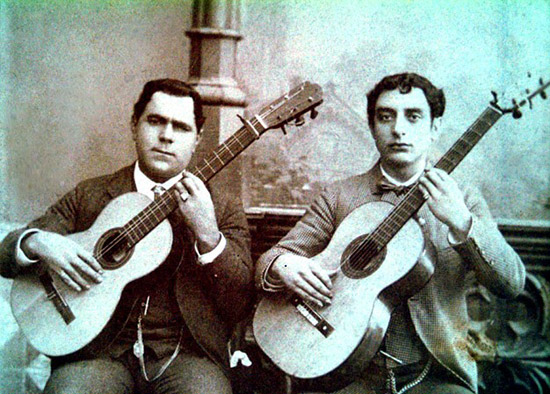Music: Music Overview
With a history that stretches back to before the days of Roman Hispania, Spain has been touched by the influence of many empires throughout the ages, and both its music and culture overall are deeply rooted in its varied traditions and dynamic past. Spain is part of Iberia, the region that was known as Hispania until the start of the 5th century. Throughout the centuries it has been settled and invaded by a number of different nations and populations, resulting in former Greek colonies along the Mediterranean Sea; the Celtic influence in southwest Spain; and al-Andalus, the Muslim Era initiated by the Moors, which lasted from the 8th until the end of the 15th century, and coincided with strong Sephardi Jewish influence throughout the Iberian Peninsula. All of these cultures have left their mark on Spain’s music.
Coinciding with the consolidation of Kingdom of Castilla with the Kingdoms of León and Aragon, the Spanish Inquisition, from the end of the 15th century into the 19th century, initiated many changes throughout Spain—notably the expulsion (or forced conversion) of Jews and Muslims, the repression of many groups, and attacks on a variety of supposed offenses such as witchcraft and an array of moral transgressions—with lingering traces that can still be heard in the passionate lament of a flamenco singer.
Meanwhile, Spain began expanding its empire by establishing colonies throughout the world. Spain’s influence was incredibly strong throughout Latin America especially, and continues to be apparent to this day in musical forms throughout that region. Though further trials have beset the country over the centuries (for example the Spanish Civil War and the subsequent Franco dictatorship in the 20th century), ancient, regional folk traditions have survived, and the colonial legacy brought with it a range of new sounds.
Article written for World Trade Press by Cam Waller.
Copyright © 1993—2025 World Trade Press. All rights reserved.

 Spain
Spain 